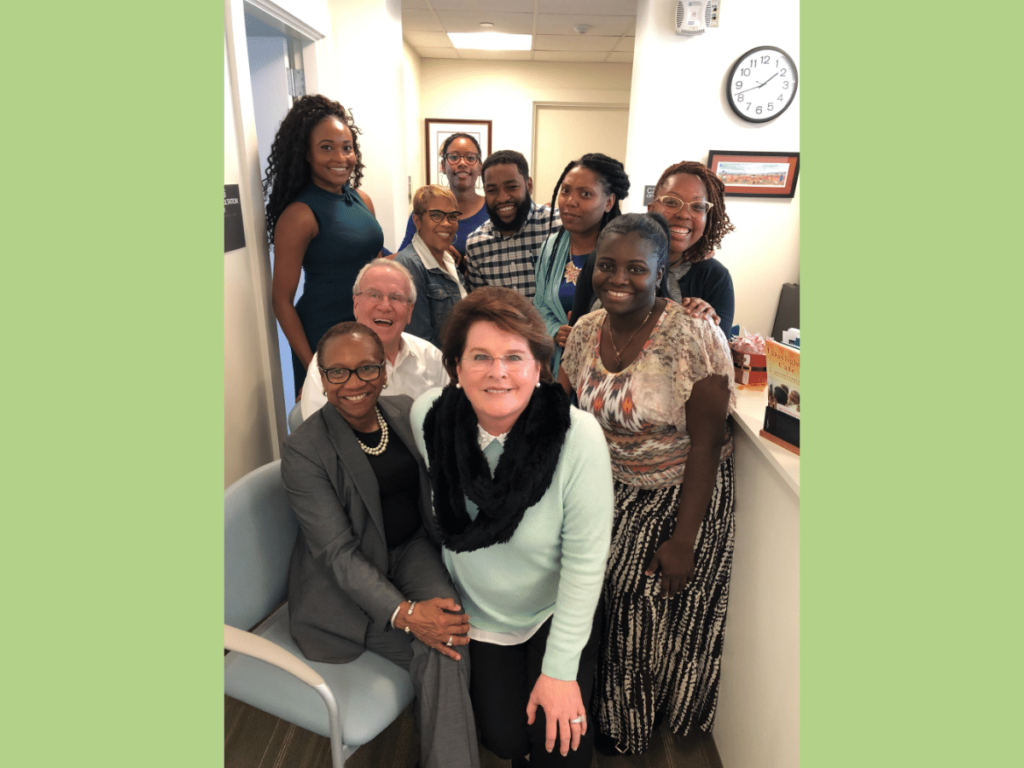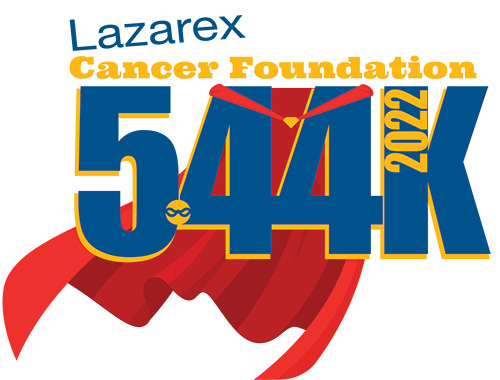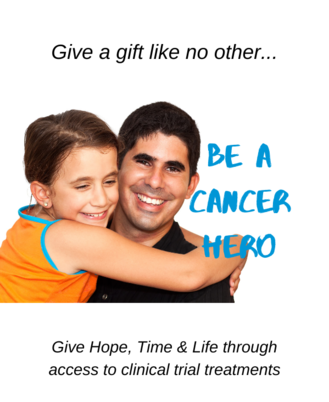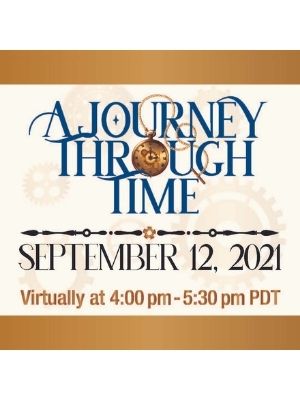by Dana Dornsife, Founder and CEO, Lazarex Cancer Foundation
The start of a New Year always brings optimism… and we are definitely in need of optimism these days. Despite the challenges that have come with the pandemic, systemic racism, social unrest, and political divisiveness – there is still so much good in the world.
I see it first-hand in my work with cancer patients who – despite life-altering and often threatening diagnoses, continue to see good all around, find things to be grateful for and maintain hope for the future.
In that spirit, here are 4 things I’m optimistic about in this new year.

1) Expanding IMPACT at Comprehensive Cancer Centers:
IMPACT (IMproving Patient Access to Cancer Clinical Trials) is our initiative to increase cancer clinical trial enrollment, retention, and minority participation, and create a sustainable platform for equitable access. IMPACT offers the opportunity for travel reimbursements related to clinical trial participation prior to or at the time of enrollment. Offering this option at the beginning of the process is a true equalizer because it removes an enormous financial barrier for many people who couldn’t consider clinical trials due to the financial burden associated with accessing a potentially lifesaving treatment.
We’ve already seen data that proves this program is a game changer. The first cancer center to launch the IMPACT program in its infancy (then called the Lazarex MGH Cancer Care Equity Program) was Massachusetts General Hospital. That program achieved a 29 percent increase in overall participation and almost doubled minority participation in cancer clinical trials. The expanded 3-year IMPACT program at UCSF Helen Diller Family Comprehensive Cancer Center and USC Norris yielded 62 percent minority participation with 51 percent of participants coming from households earning $25,000 or less annually.
This year the IMPACT program is underway at Penn Abramson Cancer Center in Philadelphia, PA and MD Anderson Cancer Center in Houston, TX, and both locations will start enrolling patients early this year. We are building on what we learned about decentralizing cancer clinical trials as a result of COVID-19, expanding IMPACT into the community oncology setting. I’m optimistic about the effort and the potentially positive impact on the lives of advanced-stage cancer patients, especially those who are marginalized.
2) Creating Community IMPACT:
While doing our work with IMPACT, we realized that we needed to gain a stronger foothold at the community level. Lazarex Cancer Foundation is pursuing its commitment to improving cancer health outcomes, addressing cancer health disparities, and building healthy communities through a novel public health initiative – Community IMPACT. The purpose is to improve the understanding and awareness of the burden of cancer on patients and their families, and of the opportunities for the prevention and treatment of cancer for residents in minority and disadvantaged communities. Through a multi-disciplinary collaboration between Lazarex Cancer Foundation and Drexel University’s School of Public Health, College of Nursing and Health Professions, College of Medicine, and the Drexel Center for Neighborhood Partnerships, Community IMPACT was launched in 2019 in West Philadelphia in some of the most underserved African American / Black Communities.
Community IMPACT combines exemplary public health qualitative and quantitative assessment and research methods with a grassroots community based participatory engagement effort in communities that are often not invited to lead their own health futures. We incorporate input from health practitioners and policy makers, in order to inform the development and implementation of strategies to prevent cancer, treat it more effectively and create equitable access to cancer resources. We have built the project around a place based, community-led model of engagement, developing an approach and team of community advocates at the Drexel Center for Neighborhood Partnerships in West Philadelphia, and then will extend this model out to other neighborhoods, medical, and academic centers in Philadelphia through peer-to-peer community leadership and direction. The impact of the initiative will be to transform both the way we think about cancer prevention and the actions we take to reduce cancer burden and disparities.
Sponsored by Lazarex, the Drexel School of Public Health recently completed and released a comprehensive report and interactive website, the State of Cancer in Philadelphia. This report provides the data and science side of the equation that shapes our outreach and engagement efforts and establishes a baseline against which we can measure our results. It offers key information to public health agencies, policy makers and care providers to help them allocate resources with health equity in mind. As Drexel University points out, “it is the first report of its kind to give a comprehensive interactive overview of cancer incidence, screening and mortality data in Philadelphia by race/ethnicity and sex for different cancer types.” This online tool is now available to help residents explore and learn more about cancer in their neighborhoods.
3) Hands on work through Cancer Wellness HUBS:
Community IMPACT has revealed the need to create a fully immersive community program that is replicable, sustainable, and affordable – yielding the Cancer Wellness HUB concept – what we consider to be the “heartbeat” of our work in the cancer health arena. The Cancer Wellness HUB is a “safe space” for community members to talk about their health concerns in relation to cancer and explore their options from prevention through treatment and clinical trials. They will have the opportunity to develop personal relationships with culturally appropriate Cancer Care Companions to overcome historical and cultural barriers for better health outcomes and help them feel welcome in an unfamiliar environment.
The HUB is not just an information source – it functions as an actual hub within the community, bringing together the many resources and services required to manage the cancer journey and provide the greatest opportunity for a successful result. In collaboration with Drexel University School of Nursing and Health Professions, we have developed community-voiced, culturally tailored, and linguistically appropriate gender-based messages and educational materials to engage with community members around cancer. The pilot West Philadelphia HUB is a bricks and mortar facility providing a local and culturally appropriate resource to answer questions, navigate historical fears, misperceptions, and cultural barriers, understand the implications of family cancer history and the importance of screenings (hereditary predisposition to cancer), explore options for prevention through lifestyle choices, and support patients from treatment to clinical trials.
The bricks and mortar approach is cost prohibitive and limits our opportunities for expansion. Therefore, we are developing a more cost effective and contemporary “pop-up” version of the Cancer Wellness HUB in the greater Los Angeles and San Francisco Bay Area, through a continued affiliation with Drexel University, USC Norris Comprehensive Cancer Center, UCSF Helen Diller Family Comprehensive Cancer Center and their associated medical networks and community organizations. The pop-up concept allows us to utilize existing facilities (churches, schools, YMCA, community centers, health clinics, etc.) within the community and still have continuous, place-based, and culturally appropriate community engagement on a consistent basis.
While the HUB in West Philadelphia serves a predominantly African American / Black community, we will replicate the same strategy and develop culturally and linguistically appropriate messaging and materials to deploy the HUB pop-up model in other diverse health-underserved communities. We will offer the same programming and engage across the continuum of cancer care to improve cancer health outcomes and address health disparities for all. We believe the Cancer Wellness HUB concept will revolutionize community outreach and engagement as we currently know it – creating a bridge between underserved communities and the cancer care resources they need.
4) We will continue Disrupting the System:
We have worked to disrupt the system through provocative conversations that seek to shine a spotlight on cancer challenges and drive positive change in cancer outcomes. This year, in our fourth Disrupting the System event, we will continue to discuss the implications of insurance and payer-mix on cancer patients – restricted access and the quality of health care they receive. We will begin discussion on new topics; building trust in health care – increasing diversity amongst medical professionals, bringing trials to the community and overcoming access barriers, and drilling down on standardizing race and ethnicity reporting in cancer clinical trials to increase diversity.
We can’t do this work alone. Our success and the level of change we are able to bring about is only possible through our partnerships, collaborations, and the support we get from so many sources. For those of you who share our passion, desire, and commitment to drive change in these areas, please follow Lazarex on Facebook and Twitter and connect with me on LinkedIn. Join us in these efforts, conversations, and developing solutions. There is much to do and we are taking action to actually achieve sustainable change.
Dana Dornsife is the Founder and CEO of Lazarex Cancer Foundation. Learn more about the national non-profit’s efforts at their website.




